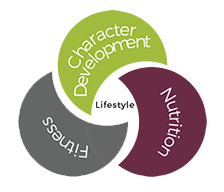What to eat for Long Distance training
By: Karla Adams, Lopergram
CARBOHYDRATES:
Carbohydrates are your body’s main source of energy. When eaten, they convert into glucose. Glucose is used by the body for energy or stored in the muscles and liver as glycogen, which is used later for energy. They are your body’s highest form of energy. Hence, the focus on carbohydrates loading before training long distances. Our body is limited as to how much glycogen we can store at a time so it is best to eat small amounts throughout the day. Too many carbohydrates at one time or too much entertainment carbohydrates can lead to weight gain or leave you feeling sluggish or fatigued during your training. Carbohydrates should make up 45-55% of your diet. About 90-95% of those carbohydrates should be complex and come from nutrient dense natural sources like fruits, vegetables, rice, beans, potatoes and whole grain. The other 10% should come from simple carbohydrates and/or entertainment carbohydrates like: honey, GU, sugar snakes, or anything else you can think of that is a simple sugar or should just be eaten for entertainment reasons. As your miles get longer, using GU will help keep your energy up. Taking GU after about 5-7 miles depending on how hard you are working will replenish glucose and keep your energy levels up. The drop in energy that accrues as you get farther in your miles is from your body burning through all of your stored glycogen.
PROTEINS:
Protein is your body’s main source for recovery. Protein is the only thing that rebuilds tissue after it is broken down from exercise. Your ligaments, blood, immune cells, tendons, muscles, bones, skin, and hair are all made of proteins. Protein also helps regulate hormones. When you are training for a marathon or just highly active you need more protein than a sedentary person. Depending on how much training you are doing and how hard you are working while training you should consume 4-6 servings of 15-25 grams of complete proteins a day. If you are feeling fatigued during your runs or in day to day activity there is a chance you may not be recovering properly. Not getting enough protein can cause your body to break down muscle tissue for energy. You are at a high risk of breaking down muscle tissue after 40-50 min of exercise. If you are pushing yourself really hard this could happen after 30 minutes. As a long distance athlete, paying attention to your recovery should be at the top of the list of priorities. If you are in a state of over training you are more likely to injure yourself and/or not enjoy your training as much. Some injuries can stop you from training temporarily or permanently. It is best to replenish your body with proteins and carbohydrates within 20 minutes after any workout. Drinking a protein shake can help give you the fastest recovery. Your body will not need to break it down much before absorption.
Some good sources of complete proteins are: meat, fishes, protein supplements, soy, dairy.
FATS:
Some different types of fats are unsaturated, saturate and trans fats. One is from plants, one from animals and the other is mostly from processed foods, respectively. Unsaturated fats help to lubricate joints, hair, skin and nails. They aid in mental function lowering LDL (the bad cholesterol) and raising HDL (good cholesterol). There are different types of unsaturated fats, monounsaturated and polyunsaturated. We need a 3:1 ratio of unsaturated to saturated fats. Too many saturated or trans fats can be really bad for your health. Some foods that contain these fats are meat, dairy, coconut oil, palm oil, and cocoa butter. Choosing meats or dairy product low in fat will help keep your saturated fat intake in a healthy range. As a runner to much fat can make you sluggish and add weight to your body, where as not enough unsaturated fats can affect your joint, mood, muscle recovery and health.
The way you eat all week long should have a focus of preparing you for the long miles on the weekend. How you eat during the week will affect how you feel on your long miles. Your nutritional needs change when you become a long distance athlete. If you have other goals along side of finishing a marathon, such as speed, optimal energy and recovery, weight loss, and/or muscle gain your nutrition can become much more specialized. It is a good idea to educate yourself on what it is you need to do to take care of your health as a long distance athlete as well as what it takes to achieve your goals. Educating yourself is very important. There are many books on the market as well as articles on the internet. Look for creditable sources.



